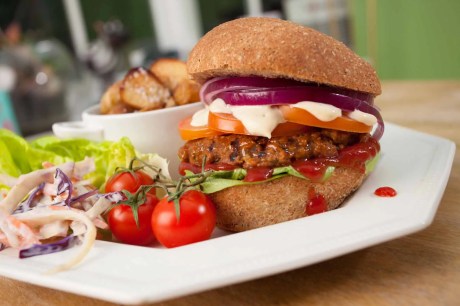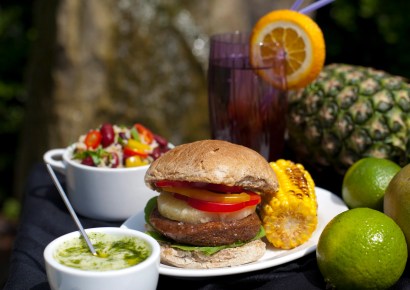A video version of this article is available here, though it is largely out of date.
See also the end of the post for updates from 2020.
Recently I saw a talk by one of the staff at B Corporation Australia. I’d sort of heard of the B Corp certification, and knew a few companies that had achieved it, and was vaguely convinced that it was a good thing (with a small level of skepticism). After seeing the talk, however, I was almost totally convinced that it meant not very much.
If you aren’t already aware, to become a certified B Corp, your company is compared to others in the same industry, and must achieve a certain score across a number of criteria (80 out of 200), including governance, employees, community and the environment. Apparently, despite sounding low, this is actually very hard to achieve.
The benefits of being a certified B Corp are that your brand is seen as being ethical and becomes one that people want to buy, and also people will want to work for you.
My first main point of skepticism was at the end of the talk when I realised the speaker had not mentioned animals as being part of the criteria, both in terms of animal welfare and in terms of environmental impact. My worry was confirmed when she said that neither of these factors were taken into consideration during the evaluation process.
This means that implementing a company cafeteria program that encourages a plant-based diet, which is significantly more environmentally friendly than an omnivorous one, does not get counted. On the other hand, less effective ways of reducing environmental damage, like having solar panels, are rated relatively highly.
Also, it leads us to the obvious conclusion that a company can participate in as much animal cruelty as it likes and still become a certified B Corp, as long as it treats its employees well.
In particular, it’s worth noting that Ben & Jerry’s, a company which produces ice cream primarily from dairy (cow exploitation and cruelty) is a certified B Corp. In my mind, the certification at this point becomes almost meaningless, given the scale of suffering experienced by the cows probably outweighs the happiness of the employees of Ben & Jerry’s.
Does this photo (not shown here due to extreme graphic content) look like the source of milk used by an ethical company? This could very well be from the floor of a factory farm producing dairy cows which B & J’s eventually source their milk from.
To their credit, B & J’s do have a vegan product line slowly being released (not in Australia yet!), but until 100% of their products are vegan, I would argue that they shouldn’t be able to achieve the certification.
I was recommended to contact the B Corporation headquarters and suggest that they add animal related factors as a requirement, however haven’t heard back yet. I hope that they will do so, to make the criteria more meaningful in terms of actually producing positive outcomes for the wellbeing of individuals.
I also have other concerns about the criteria not covering the most important considerations for the wellbeing of employees and stakeholders, though I haven’t done enough research to determine whether this is a problem.
I’ve added this at the end, as the article was starting to look like an attack on Ben & Jerry’s specifically. I do want to make it clear that I think they are just one example of a company that probably shouldn’t get to call itself ethical.
It irks me that Ben & Jerry’s tweet things like “Black Lives Matter. Choosing to be silent in the face of such injustice is not an option.” without recognising that they are also contributing (in a big way) to another injustice to another species.
Their motto is ‘Peace, Love & Ice Cream’. I’m not sure they know what half of those words mean.
Edit – 04/06/2020
I just wanted to revisit this and give a little update. Ben & Jerry’s now have a delicious vegan ice cream range and that’s great. My impression today is that they’re probably more conscious of animal and environmental than most food companies.
I want them to transition to be fully vegan, but I appreciate that won’t happen until the demand for vegan ice cream increases substantially. They are a corporation and corporations don’t do things without a profit incentive.
I want to reiterate that I singled out B&J here only because it was a useful example of a B Corp I had been thinking about at the time. There are many B Corps (and organisations more generally) that are somewhat reasonable when it comes to the treatment of humans, but atrocious when it comes to the treatment of non-humans. I will always be critical of these, though I will encourage progress in the right direction where I can.
In the same way that I don’t stop shopping at Woolworths just because they don’t only stock vegan products (instead I thank them and ask for more), I’ll do the same for companies like B&J.
I reread this and was surprised to see I had mentioned B&J’s Black Lives Matter tweet. It’s by coincidence that I am revisiting this post now when this issue has resurfaced. I checked B&J’s Twitter account and saw that they have made another BLM tweet in the last week. To my surprise, the response on Twitter was largely positive (anecdotes only from here on!).
I was surprised because I’ve seen people being critical of companies in the last week speaking out in support of the movement. The message can seem hollow and there only to capitalise on the issue and show how great corporate citizens they are. For B&J, people seemed to suggest that they are always speaking in support of social justice issues, and so they feel more inclined to believe the sincerity of B&J’s.
Am I too harsh on B&J’s? Let’s consider this from the perspective of their CEO. They are bound to the board of directors, who are bound to the shareholders, who are bound to their bottom line. Within this frame, what can the CEO do, even if they are the staunchest human/non-human rights advocate in the world? Consistently speaking in support of social justice issues and creating more vegan products might be a good start.
Hmm.
Edit – 05/06/2020
I was looking in to this some more this morning and found this article on B&J from last year.
“Last month, Ben & Jerry’s revealed that it will no longer claim on its product packaging that its ice cream comes from “happy cows.” The company’s statement comes after being sued twice for deceiving consumers about its animal welfare policies.”
“Although companies state in court that consumers are not misled by their advertisements, the reality is that industrial food producers are knowingly exploiting animals and deceiving consumers.” [it’s unclear here whether or not this refers to B&J as several companies are mentioned]
Hmm.
Edit – 10/06/2020
I’ve updated the title from ‘Why do people think Ben & Jerry’s is an ethical company?’ to ‘Is Ben & Jerry’s an ethical company?’ to more accurately represent my current views on the organisation, which is to say, I’m just not really sure.
This edit was prompted by a claim I’ve seen on Facebook that B&J’s hire ex-convicts. “the reason their ice cream is so overpriced is because they hire ex-cons and pay them $16+ which is OVER the minimum wage.” – source of claim.
I checked, and couldn’t find any direct evidence that B&J’s hire ex-convicts. However, I did find that the bakery that makes the brownies that go in their ice cream does hire ex-convicts. From this article:
“Greyston, which is located in Yonkers, New York, has made it their mission to hire ex-convicts, the homeless, recovering addicts, and anyone else with a rough past who has had trouble finding work.“
I couldn’t find anything about them being payed over the minimum wage, but it may well be the case.
The person also claimed that the founders of B&J’s (Ben Cohen and Jerry Greenfield) were arrested in a protest. This seems to be true (they were apparently arrested in 2016 and 2018 at protests about money in politics and F-35 jets due to noise pollution respectively), however it should be noted that Ben and Jerry do not own B&J’s as of 2000. I’m unsure what involvement they have had with the organisation since then – possibly none.








